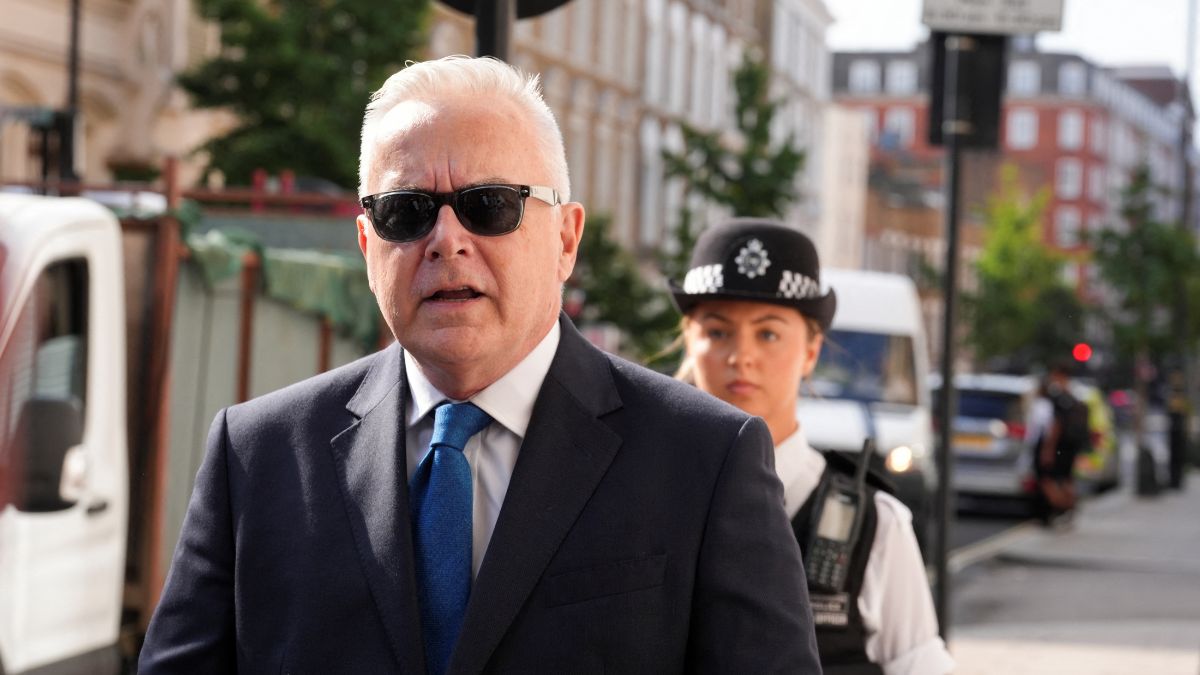Huw Edwards, a prominent figure in British journalism, stunned the public and his employer, the BBC, with his guilty plea to charges of making indecent images of children, on Wednesday. The 62-year-old former news presenter, who had been a household name and a trusted face for decades, was charged with three counts of making indecent images of children.
Edwards’s career with the BBC spanned over 40 years, starting at BBC Wales and culminating in his role as the lead anchor for major events such as the funeral of Queen Elizabeth II in 2022 and general election coverage.
His fall from grace began with his suspension in July 2023, following separate allegations, which did not result in charges. Edwards resigned from the BBC in April 2024 on health grounds.
What are the charges against Edwards?
The charges relate to a period between December 2020 and August 2021, during which Edwards received 377 sexual images from a man on WhatsApp. Of these images, 41 were deemed indecent, including seven classified as “category A” – the most severe classification, involving penetrative sexual activity or sadism.
The court proceedings revealed disturbing details of the case. The images received by Edwards included 36 “category B” and “category C” images, in addition to the seven “category A” images.
Impact Shorts
More ShortsMost of the children depicted were estimated to be between 13 and 15 years old, with one child believed to be aged between 7 and 9. The exchange of these images occurred within a two-month window, although communication between Edwards and the man continued until April 2022, albeit with legal pornographic content.
What is Edwards’ defence?
During a 26-minute hearing at Westminster Magistrates’ Court, Edwards’s lawyer, Philip Evans, argued that Edwards had not created any of the images, stating, “There’s no suggestion in this case that Mr. Edwards has… in the traditional sense of the word, created any image of any sort.”
He stated that Edwards did not keep or distribute the images further. The defense also highlighted Edwards’s mental and physical health issues, suggesting these factors, along with his previously good character, should be considered in sentencing, reported AP.
How has BBC responded?
The BBC responded with shock and disappointment. In a statement, the corporation said, “The BBC is shocked to hear the details which have emerged in court today. There can be no place for such abhorrent behavior and our thoughts are with all those affected.”
This case has sparked intense scrutiny of the BBC’s handling of the situation, especially concerning the timeline of events leading to Edwards’s suspension and eventual resignation.
The BBC revealed it first became aware of the allegations in November 2023 when Edwards was arrested on suspicion of serious offenses. Despite being informed “in confidence,” the corporation stated that had Edwards been charged during his employment, it would have dismissed him immediately.
However, Edwards had resigned two months prior to being officially charged in June 2024.
What kind of sentencing may Edwards face?
Edwards faces a potential maximum sentence of 10 years in prison. However, due to factors such as his guilty plea, remorse, and lack of previous convictions, there is a possibility he may receive a suspended sentence. Prosecutor Ian Hope acknowledged Edwards’s “genuine remorse” and the possibility of rehabilitation as considerations that might influence the sentencing decision.
The pre-sentencing hearing is scheduled for September 16, where the final judgment will be made.
The case has broader implications beyond Edwards’s personal fate. The National Society for the Prevention of Cruelty to Children (NSPCC) issued a statement that highlighted the seriousness of the crimes, stating, “It can be extremely traumatic for young people to know sexual images of themselves have been shared online.”
The NSPCC called for more robust measures to prevent the sharing of child abuse images on digital platforms.
Will this case impact BBC?
The scandal has also put a spotlight on the BBC’s internal processes and its response to allegations of misconduct. There is growing concern over how the corporation manages such cases, with criticism directed at the perceived delay in taking action following the initial complaint.
Tim Davie, the BBC’s Director-General, admitted that the situation was “clearly damaging” to the organisation and indicated that there might be “learnings from this case on process and protocol.”
In response to the incident, the BBC updated its guidelines regarding workplace relationships and misconduct, specifically addressing issues of power imbalances and potential grooming behaviors.
The new guidelines are aimed at putting a spotlight on the importance of reporting concerns and maintaining a professional environment. As Edwards awaits sentencing, the BBC faces the challenge of rebuilding trust with its audience and ensuring that such incidents are handled swiftly and transparently in the future.
Also Read: Who is BBC's Huw Edwards, man at the centre of sex scandal?
With inputs from agencies


)

)
)
)
)
)
)
)
)



